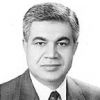Will Taliban endorse new Loya Jirga?
Of the 20 or so grand jirgas held since 1700, eight were called in a short period between 2001 and 2019.

Loya Jirga is an Afghan Pakhtun institution predating the modern era. It signifies the democratic base of Pakhtun society. “Loya” means “big” because delegates are invited from all over Pakhtun lands in Afghanistan. The delegates are important tribal leaders, ulema, teachers and men with influence in their communities.
The jirga is called when Afghanistan is faced with a bigger issue of national importance such as endorsing a new head of state in case of sudden death, adopting a new Constitution, war and peace and national or regional issues. It is essentially a Pakhtun gathering. There is no limit on the number of attendees. There is no time limit for the duration of the jirga. It continues for as long as the issues at hand are fully debated and a verdict arrived at. Other nationalities of Afghanistan now participate as observers. It is not easy to manipulate the outcome of the Loya Jirga. That is why the verdict of the jirga has sanctity among Pakhtuns.
Of the 20 or so grand jirgas held since 1700, eight were called in a short period between 2001 and 2019. This is because the Pakhtuns themselves are divided between the Taliban and the rest as to what sort of polity Afghanistan should be. The frequent convening of the Loya Jirga for partisan purposes has eroded the sanctity of this great institution.
There is no tradition of a Loya Jirga among the Pakistani Pakhtuns. However, a Loya Jirga was convened by Bacha Khan on June 21, 1947, in Bannu to deliberate over Pakistani Pakhtuns in the wake of Independence. The jirga demanded that the Pakhtun lands of British India should form an independent country. The British rejected the demand. The Red Shirts boycotted the referendum held to determine the future status of the then NWFP after Partition.
With mounting financial and human cost over 17 long years of war, President Donald Trump is calling it a day. The mood to withdraw from the global scene has been set by him. His concentration is on an “America First” policy. The withdrawal from the world stage has been a recurring theme in American history. Trump wants to “get the hell out” of Afghanistan, and called it a folly for a world power to keep fighting unwinnable wars. The decision to withdraw is as good as made.
Direct talks between the US and the Afghan Taliban started in 2005 in Doha, Qatar. A retired US ambassador called it “divorce proceedings”. The proceedings are stretched because the engagement was long. What has made the peace process so complicated is that the Taliban do not recognise the third party to the conflict: the government of Afghanistan.
President Ashraf Ghani could not sit idle when the present round of talks in Doha started on May 1. He called a Loya Jirga of 3,200 delegates, one-third of which are women. The exercise is to shore up his position against the Taliban, the US decision to withdraw, and the upcoming presidential election. This is the best he could do and nothing else if America declares victory and quits. Loya Jirgas do not cut ice if the Afghan nation is divided in the middle. When the fighting Taliban ignore its decisions the exercise is as good as having gone to waste.
The Taliban sustained their long struggle against a foreign aggressor in the name of Islam. Their struggle was valiant and firm as exhorted by their faith. But the resort is to pick and choose when it come to religious injunctions, including those contained in the verses of the Quran.
The Taliban should make peace now both with the US and the government when they are so inclined. The government in Kabul is a compelling reality. The Taliban denial cannot make it disappear. Their sacrifices were given in order to win back Afghanistan from the US and not to steal a march on Kabul once the American troops left the country. Further intransigence will cause more Afghan blood to be spilled, adding to the long casualty list of 75,000 already killed, and that blood would be on the hands of the Taliban.
By arrangement with Dawn
